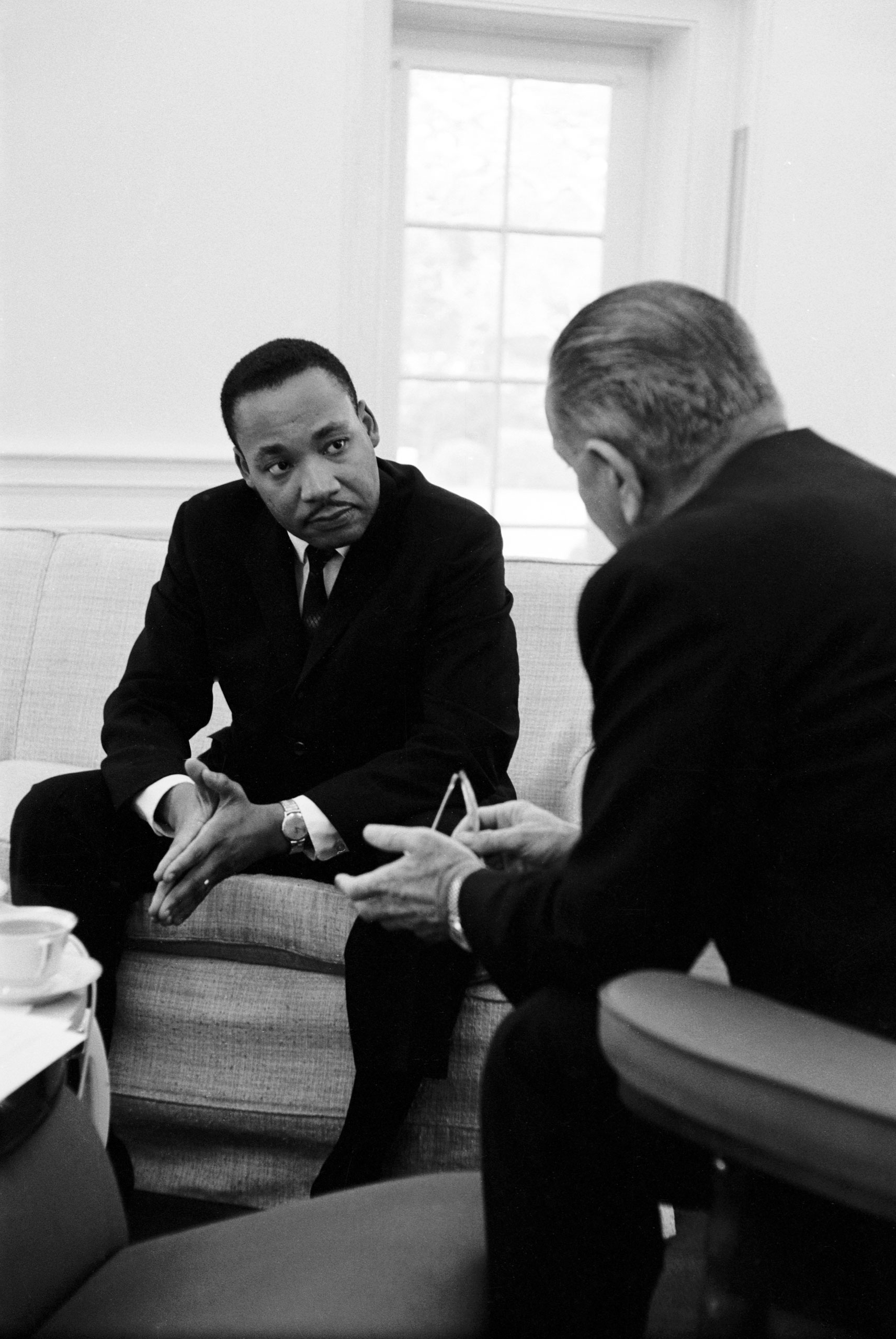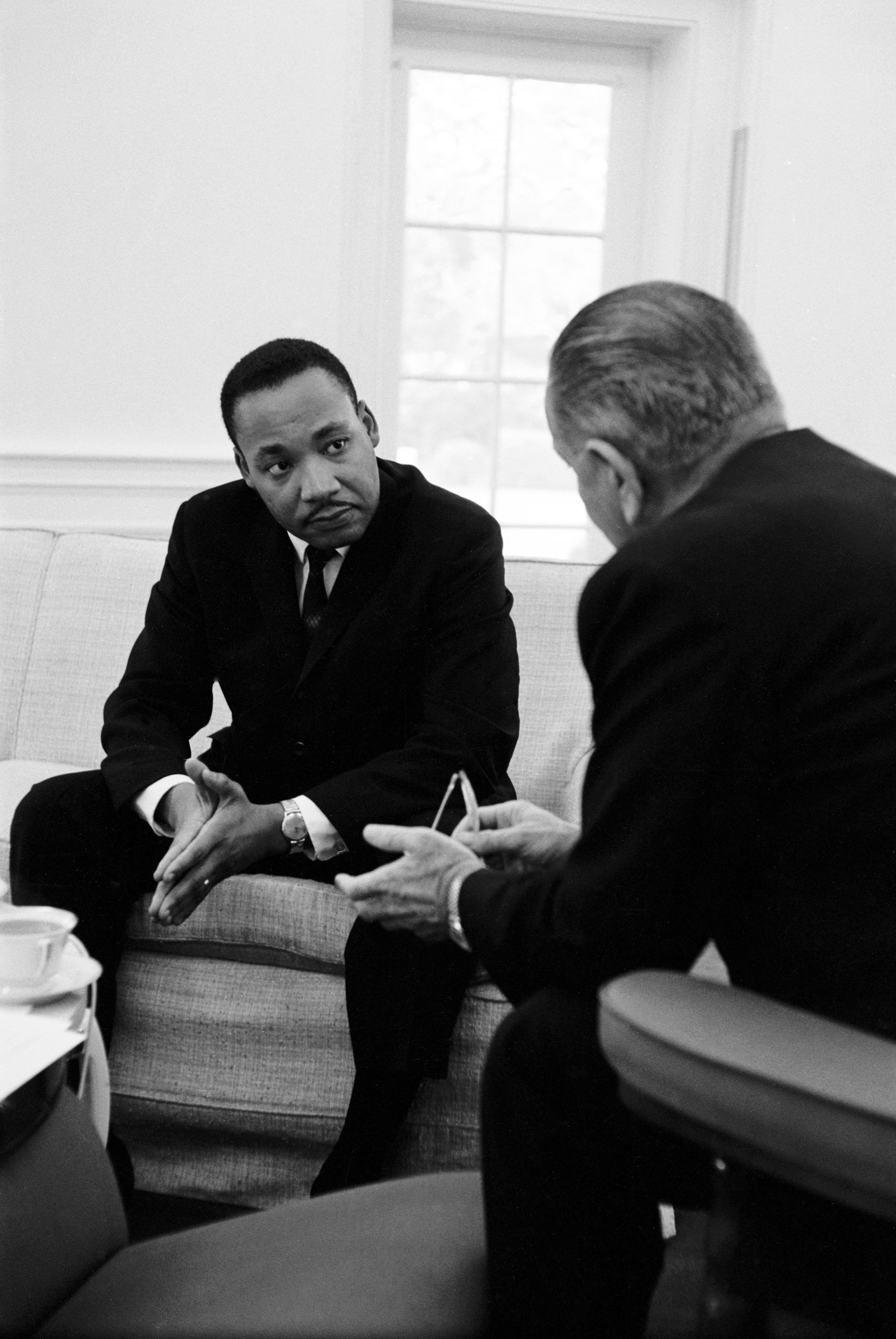
The release of Selma, the drama detailing the 1965 voting rights marches from Selma to Montgomery, Albama, has unleashed its own drama with critics charging that director Ava DuVernay’s film unfairly depicts President Lyndon Baines Johnson’s actions during that period. Less than a year before the marches, King published an article in LIFE outlining the contours of his complicated relationship with the president.
A few days before the film’s release, Mark K. Updegrove, director of the L.B.J. Presidential Library and Museum, wrote in Politico that the film’s version of Johnson “flies in the face of history.” One of the movie’s central tensions—indeed, the driving force behind the Southern Christian Leadership Conference’s decision to march—is Johnson’s reluctance to prioritize voting rights legislation over his War on Poverty. In reality, these critics say, Johnson was a much more willing partner than the movie leads viewers to believe. “In truth,” Updegrove wrote, “the partnership between LBJ and MLK on civil rights is one of the most productive and consequential in American history.”
Joseph A. Califano Jr., who served as Johnson’s top aide for domestic affairs, further stoked the fire, writing in the Washington Post, “Johnson was enthusiastic about voting rights and the president urged King to find a place like Selma and lead a major demonstration.” He added that the march was Johnson’s idea, a suggestion DuVernay took to Twitter to call “jaw dropping and offensive to SNCC [the Student Nonviolent Coordinating Committee], SCLC and black citizens who made it so.”
The May 15, 1964 issue of LIFE featured an excerpt from King’s then soon-to-be-published book Why We Can’t Wait (an expanded version of his famed “Letter from a Birmingham Jail”). Of Johnson, King wrote about the benefits of getting to know him while he was John F. Kennedy’s Vice President:
I had been fortunate enough to meet Lyndon Johnson during his tenure as Vice President. He was not then a presidential aspirant and was searching for his role under a man who not only had a four-year term to complete but was confidently expected to serve out yet another term as Chief Executive. Therefore, the essential issues were easier to reach and were unclouded by political considerations.
His approach to the problem of civil rights was not identical with mine—nor had I expected it to be. Yet his careful practicality was, nonetheless, clearly no mask to conceal indifference. His emotional and intellectual involvement was genuine and devoid of adornment. It was conspicuous that he was searching for a solution to a problem he knew to be a major shortcoming in American life …
King went on to praise Johnson’s grasp of the complexity of the problems, as well as the strength of his resolve to address them, though he added that he wouldn’t hesitate to escalate the pressure if Johnson veered off-course:
Today the dimensions of Johnson’s leadership have spread from a region to a nation. His recent expressions, public and private, indicate that he has a comprehensive grasp of contemporary problems. He has seen that poverty and unemployment are grave and growing catastrophes, and he is aware that those caught most fiercely in the grip of this economic holocaust are Negroes. Therefore, he has set the twin goal of a battle against discrimination within the war against poverty.
I have no doubt that we may continue to differ concerning the tempo and the tactical design required to combat the impending crisis. But I do not doubt that the President is approaching the solution with sincerity, realism and, thus far, with wisdom. I hope his course will be straight and true. I will do everything in my power to make it so, by outspoken agreement whenever proper, and determined opposition whenever necessary.
Those views, designed for public consumption and no doubt political in nature, provide a window into the relationship of two men who helped enact one of the most significant changes to come out of the Civil Rights movement.

More Must-Reads from TIME
- Cybersecurity Experts Are Sounding the Alarm on DOGE
- Meet the 2025 Women of the Year
- The Harsh Truth About Disability Inclusion
- Why Do More Young Adults Have Cancer?
- Colman Domingo Leads With Radical Love
- How to Get Better at Doing Things Alone
- Michelle Zauner Stares Down the Darkness
Write to Eliza Berman at eliza.berman@time.com